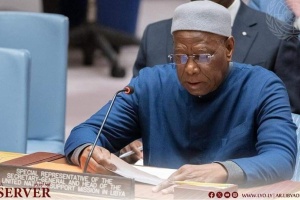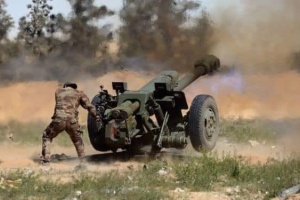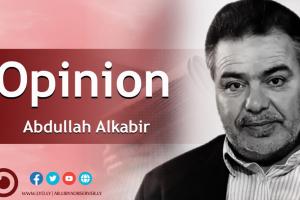By Abdullah Alkabir, political writer and commentator
Features of the US role in the post-Bathily era

The resignation of the UN envoy to Libya, Abdoulaye Bathily, did not constitute a significant development at the local level, for several reasons, the most important of which was his inability to make any breakthrough into the crisis, and the decline of UNSMIL’s role in general in almost all files. However, it is considered an important event at regional and international levels, driving countries involved in the Conflict, to prepare for all possible scenarios following the resignation.
Everyone following up on the Libyan issue is aware of the circumstances that brought Bathily to this mission, following the failure of the major powers at the UN Security Council to name a new envoy. Despite the fact that the UN Secretary-General proposed several names for the vacant position, they could not gain the consensus of the major powers at the Security Council, and in light of the continuing such disagreement they all accepted the African Union candidate, Senegalese politician, Abdoulaye Bathily.
The position is important for the major powers and their allies in the region, because all political solutions and settlements will be handled by the special envoy, and then approved by the UN Security Council.
It is very logical for all countries concerned with the crisis to prepare for the next phase, which is expected to be led by the US diplomat Stephanie Khoury, who will take over as acting head of mission succeeding Bathily, in conjunction with the return of the US embassy to work from Tripoli, and then Khoury will receive strong diplomatic support to implement her plan, after she officially takes over and resume her duties by mid-next month.
What are the features of the US role in the Libyan crisis in the next stage?
The US move to announce the return of the embassy to work from Tripoli, then the drive for the US diplomat Stephanie Khoury to the position of deputy head of UNSMIL, to take over as head of UNSMIL following Bathily’s resignation, are strong indications of greater US involvement in the crisis, by keeping the Libyan file in its hand through Khoury. The biggest motive for this new move is due to the growing Russian influence in Libya, reaching dangerous levels that require the USA to pay more attention to Libya, to protect its interests and those of its allies.
The former US Special Envoy to Libya, Jonathan Weiner, revealed, in a lengthy analytical article published by the Middle East Institute, the intense Russian military activity in Libya, that could result in the establishment of a naval base, as well as other bases in the center and south of the country, where Wagner elements are present. Besides, providing Haftar with billions of counterfeit currencies to enhance his influence and authority, and with this effectiveness, Russia expands its activity in sub-Saharan African countries.
Obviously, there is nothing new in Weiner’s statement about Russian support for Haftar, as it is among the facts spelt out in the periodic reports of UN Security Council experts, and Moscow’s acknowledgement by some of its officials of such support, and its justification that it was done at the request of the authorities in eastern Libya. There is also nothing new in Weiner’s article, about the failure of UNSMIL to oblige Libyan leaders to work together to reach a political solution, as well as his account about the political and military developments over the past few years.
However, what is important in Weiner’s article is his call on the US administration to defend its interests, because increasing Russian presence in Libya is a threat to US national security.
Weiner's warnings, and certainly other political figures, as well as reports from centers of research and strategic studies, and intelligence reports, seem to have found listening ears in the White House offices, prompting the US embassy to return to function from Tripoli, and Khoury takes over the leadership of the UN mission, succeeding Bathily, and some circulated reports about military training for some local factions carried out by a security company linked to the US State Department.
There is no doubt that these developments are extremely dangerous, requiring all national forces to overcome their differences and conflicts, and to look at the possibility of the Russian-Western confrontation escalating to a critical point turning Libya into another arena for this confrontation, and to work together to spare the country the dangers of this scenario by all available means.
Disclaimer: The views and opinions expressed in this article are those of the writer, and do not necessarily reflect those of the Libya Observer




